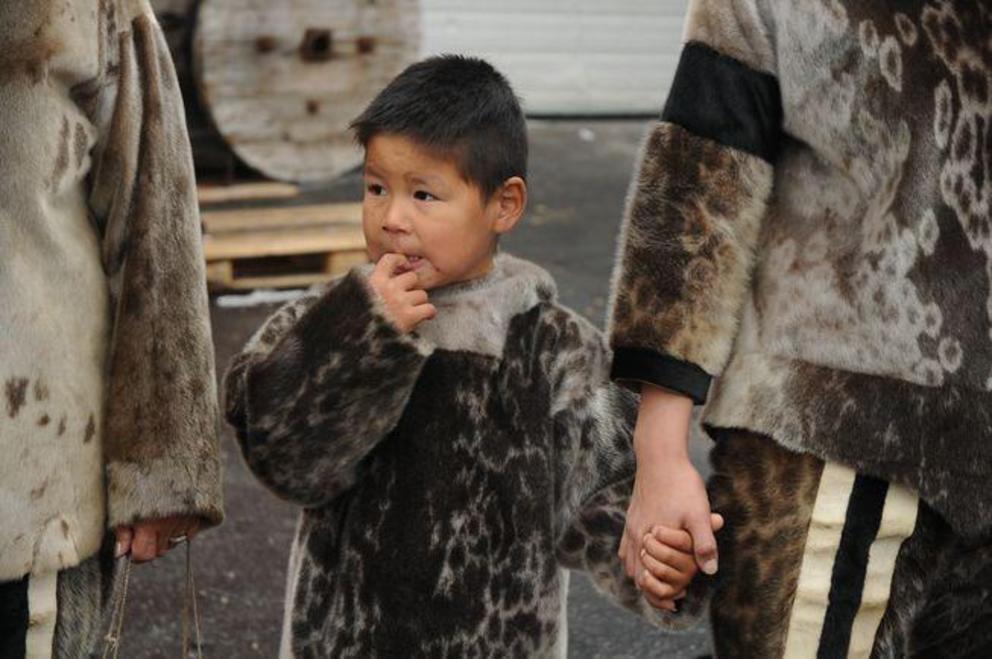The Inuit have a simple way of teaching their children how to control anger
It's no surprise that, as a society, we often focus on ways to manage anger. We know it's bad for us, and that rage-aholics aren't long for this Earth. We also know it's bad for the people who have to deal with that anger.
So we focus on ways to quell a seemingly ever-simmering ire that only wants to watch the world burn.
Take a deep breath. Try a little humor. How about a walk in the forest?
Yes, when it comes to managing our anger, we all know the drill. And yet, every sphere of modern society — from the political discourse to that mean comment at the bottom of a story — is steeped in rage.
It's reached the point where some are dubbing this an age of anger.
Going back to the beginning
But what if we stopped trying to manage anger and instead tried stamping it out at the womb? Can we teach our children to never know anger in the first place?
That's one of the questions famed anthropologist Jean Briggs set out to answer when she ventured to the Far North in the 1960s. She spent 17 months living in an Inuit community.
And she stood out for more than the obvious reasons. Notably, compared to the even-keeled Inuit, she was a raging inferno.
"My ways were so much cruder, less considerate and more impulsive," she recalled in a 2011 CBC radio interview. "I would sulk or I would snap or I would do something that they never did."

During her time among the Inuit, Jean Briggs didn't see any children being scolded. (Photo: takasu/Shutterstock)
Briggs, as she recollected in her landmark 1971 book "Never in Anger," was struck by how calm and collected everyone was — and the jarring contrast that created against her own unruly emotions.
Even when some truly rage-worthy things happened — like a teapot falling and smashing against the floor — the Inuit never betrayed a hint of anger.
"Emotional control is highly valued among Eskimos," she wrote in the book. "Indeed, the maintenance of equanimity under trying circumstances is the essential sign of maturity, of adulthood."
Why so calm, she wondered?
And more importantly, how can the rest of us get there?
For the answer, Briggs looked to the children. The way they responded to difficult circumstances appeared to be something they learned from their parents. And that simple parenting technique?
Never scold.
It became clear to Briggs when she came upon a woman inviting her young son to throw a rock at her, as she related in the CBC interview. When he did, she didn't berate him angrily, but rather told him calmly that it hurt.
Rather than flashing rage, she only illustrated the very real consequences of his actions: pain.
Decades later, writer Michaeleen Doucleff followed in Briggs' footsteps, visiting Iqaluit, Canada, "in search of parenting wisdom, especially when it comes to teaching children to control their emotions."
And, as she writes in NPR, Doucleff found a common strand among Inuit parents:
"Across the board, all the moms mention one golden rule: Don't shout or yell at small children."

Angry scolding often just teaches a child anger. (Photo: Konstantin Shevtsov/Shutterstock)
Indeed, among the Inuit of this Arctic community, Doucleff found a people who practiced the theory that screaming at a child only teaches the child how to scream.
"It's a vicious circle," University of Pittsburgh researcher Ming-Te Wang noted in a 2013 study. "And it's a tough call for parents because it goes both ways: Problem behaviors from children create the desire to give harsh verbal discipline, but that discipline may push adolescents toward those same problem behaviors."
Inuit society seems to have learned that lesson long ago, and managed to break that cycle.
"Traditional Inuit parenting is incredibly nurturing and tender," Doucleff writes. "If you took all the parenting styles around the world and ranked them by their gentleness, the Inuit approach would likely rank near the top."
And what kind of children does that tender society produce?
The kind, it seems, who can live harmoniously in one of the world's harshest climates — often with threadbare resources, where survival hinges on making the most efficient use of their natural world.
And yet this group still manages to be at peace with itself and with others.
Maybe that's because it's also the kind of society that teaches kindness above all else.

